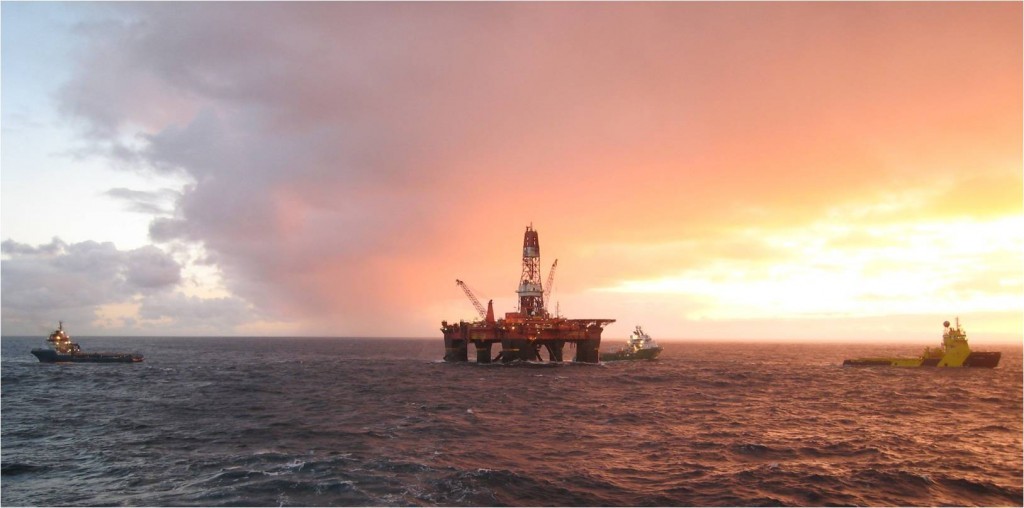
Sir Ian Wood’s analysis in 2012 that the North Sea industry was not viable when Brent crude was $114 a barrel and that drastic action had to be taken to save the industry is a sobering thought.
If that was the case then, surely the game is up when Brent persistently hovers around the $50 mark.
Even the creation of the heralded industry saviour, the Oil and Gas Authority, with its linkages to Oil and Gas UK and the UK Treasury has made little impact on saving the aging behemoth.
Yes, action has been taken to make the industry more profitable, but arguably the North Sea is still the most expensive theatre in which warring oil companies compete.
And the fact that in the past year cost-cutting has resulted in the loss of over 65,000 jobs associated directly or indirectly with the North Sea oil industry tells it all. If that status quo persists the future for North Sea oil is black.
The first point to note, and as difficult to comprehend as it may seem to Anglophiles, is that the UK and particularly London is not the centre of world affairs.
The dynamics of the global economy and the struggle for world dominance are such that the variables that currently pressurise the North Sea industry into near oblivion will alter in nature and size in the not too distant future and be largely beyond UK control. Let’s look into our crystal ball and, well, take a guess at where we will be by 2025.
Will Russia and the US have sorted out their differences and become bosom buddies? Well, always good to start with an easy one. No.
Most of the current turmoil in global economies and in the price of oil is down to the struggle between the bear and the eagle for political, economic and territorial advantage. Sometimes the struggle is overt as in Syria where the US arms insurgents who fight President Bashar al-Assad whilst Russia arms Assad.
The oil dependent Russian economy has been under intense pressure due to low oil prices which were, inter alia, the result of the over production of Shale oil in the US and also because of collaboration between the US and its Middle East ally Saudi Arabia to keep oil prices depressed.
It is a fairly safe bet that Russia will not back down from the Western pressure but will surely stop short of using its nuclear threat. In such a stand-off situation oil prices are likely to remain at a low ebb for many years to come. The result would be a somewhat blackish outlook for the North Sea.
If by some unexpected occurrence Russia and the US were to become bedfellows where would that leave oil? If all countries possessing oil were then free to produce whatever amounts they thought they could sell then supply would outpace demand, prices would fall, and that would make us long for the glory days when oil stood at the high price of $50 a barrel.
So let’s be realistic and assume the West and Russia will never allow free exploitation of oil by all nations. Alas, poor Libya, Iraq and Iran may once again be beaten, broken and suppressed in their attempts to maximise economic return from their oil. Oil prices would rise, as would hopes for the future of the North Sea industry.
But then fracking plays in the US would be reworked as they again became economically viable and the whole cycle of over-supply would kick in. The result here would be a grey/black one for the North Sea.
In 2025 will Aberdeen be basking in summer temperatures in the high nineties? Alas, not likely.
However, despite Aberdeen maintaining, with granite-like resolution, its reputation for being the coldest place on Earth, in 2025 the global clamour for outright opposition for the use of fossil fuels will be unstoppable. The moral arguments may actually be listened to in earnest.
Oil companies will be seen as the completely unacceptable face of carbon polluters (car(bon)buncles?) in the global warming game. There may even be claims for damages against companies, and Governments, for past atrocities related to oil and gas exploration activities.
We accept that this is an extremely pessimistic view of the reaction against carbon emissions but it is not pure fantasy. Oil companies are living on borrowed time and if this is not the case in 2025 it will be by 2035.
In any event, if climate change activists succeed in their moral crusade and are not all labelled insurgents by gun-toting Texans in 2025 the future for North Sea oil is black and by 2035 as black as a black hole!
Alex Russell is Professor of Petroleum Accounting, Robert Gordon University, Peter Strachan is Professor of Energy Policy, Robert Gordon University
Recommended for you
